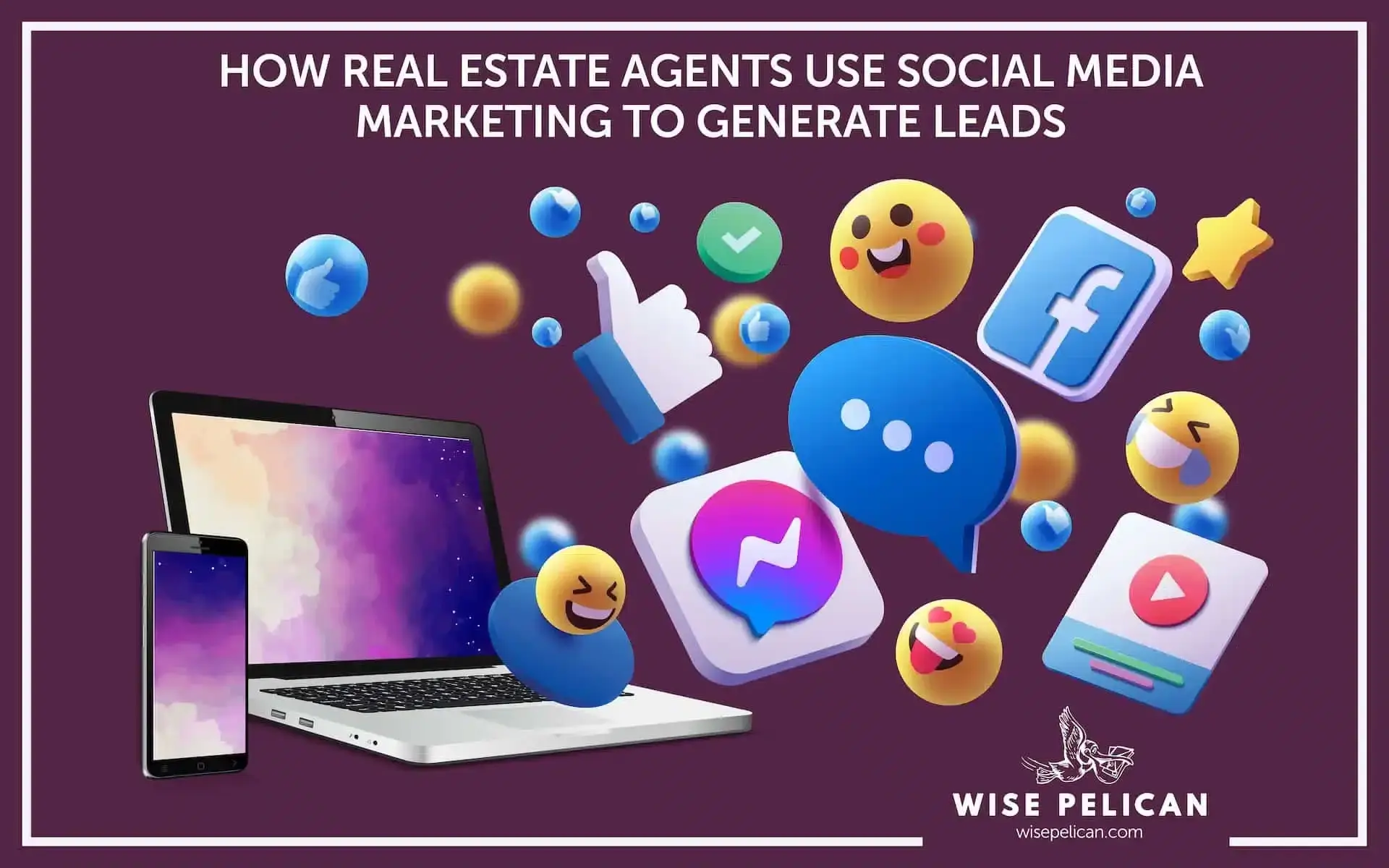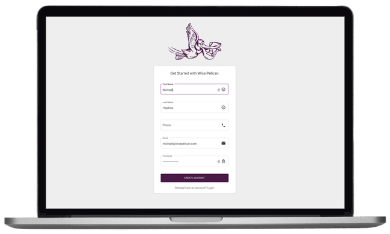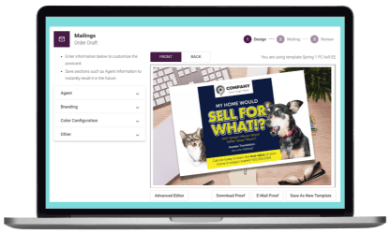Your ability to effectively connect with your target audience through marketing plays a major role in your success as a real estate agent. Traditionally, methods like newspaper ads, mailers and other marketing avenues were heavily used by real estate agents to reach potential home buyers and sellers.
However, social media outlets are increasingly relevant, and they present real estate agents like you with incredible opportunities to connect with potential clients at minimal or no cost. However, you need the right marketing strategy to optimize the full power of social media marketing.
Before diving into the best practices for real estate social media marketing, let’s explore why leveraging social media platforms is an excellent method for generating leads and strengthening your brand.

Free to Use and Get Started
The unfortunate reality is that many marketing avenues cost a small fortune to get started using. For example, you could spend hundreds of dollars or more to pull together a mailing list for your farm and to send even one direct mailer out to them.
The cost of stamps, paper, ink and more are a part of each future direct mail campaign.
Social media marketing, however, is free to use. You can get started today by simply creating an account at no cost. Each social media post can be created at little or no cost, and it can be dispatched to your followers at no cost. Paid promotions are available, but they are not necessary when you.
Whether you are a new or established real estate agent, the ability to expand your reach without tapping into your limited marketing budget is essential for business growth.

Targeted Ads
Your marketing efforts as a real estate agent may be more effective when you target a specific geographic area. For example, you may focus your attention on your farm area to build brand recognition through direct mail marketing.
With social media marketing, your efforts can be equally as well-defined. For example, through marketing campaigns, the use of hashtags and other techniques, you can increase the visibility of your posts, tweets and more to individuals who are in your geographic area.
If your budget permits, many social media platforms offer you the ability to create paid ads that drill down to a very specific target audience. Consider targeted social media ads a digital version of geographic farming.
Potential for a Post to Reach a Large Audience
Social media posts and paid ads can be liked, shared, retweeted and more by your target audience. When this happens, the posts are visible to a significantly larger group of people. When those people then like, share or retweet your post again, the post’s visibility is magnified further.
A post that goes viral may be viewed by hundreds of thousands of people or more. Creating a post that goes viral is a challenge, and it is directly related to the quality of content that you create and publish. After all, people will only share content that they deem to be interesting or valuable in some way to their own followers.
Potential Pitfalls with Social Media for Real Estate Agents
While the benefits of social media marketing for real estate agents can be profound, this is not a golden goose. There are several downsides that can detract from these benefits. It is important to fully understand both the benefits and drawbacks associated with any aspect of your marketing campaign before you jump in the water.
With this in mind, what are some of the downsides associated with using social media avenues for your real estate marketing campaigns?

Not Designed for Bottom of Funnel Engagement
In the marketing world, the bottom of the funnel refers to the space where your leads are converted into clients. This is ideally where you want to heavily focus your marketing efforts because these are leads who are about to search for a new house or list their house for sale soon. Social media marketing, however, could capture leads anywhere along the sales funnel.
It may even capture the attention of people who have no intention of making a real estate move within the next five years or longer.
Nonetheless, nurturing your social media accounts will produce some leads across the sales funnel, and this includes at the bottom of the funnel. Even those who follow your content without any current intentions to buy or sell may eventually shift into a hot lead down the road. In this way, you are able to nurture leads easily.
This is also why social media marketing works best in conjunction with another, more direct form of marketing. For example, real estate postcard marketing campaign compliments your social media campaign.
Requires a Significant Investment of Time Before Results Can Be Generated
The average conversion rate for social media marketing is roughly 0.71 percent. This is compared to 16 percent for organic leads generated from your website. Keep in mind that social media marketing is only effective when your audience views your marketing, which generally means that you must have a large following or you must pay to promote it.
The exception to this is if you create viral content that is shared by many people. It takes a considerable amount of time to build a large, strong following. With a low conversion rate, it may be a while before your efforts produce even one qualified lead. Nonetheless, once your social media accounts are up and running and you have a good following, the ability to get in touch with your target audience immediately, directly and at no cost is truly beneficial.
A Limited Audience
One of the keys to success with social media marketing is to utilize the right social media platforms to connect with your target audience. Some of the most popular platforms are Facebook, Twitter, LinkedIn, Instagram and others.
However, these platforms appeal to different people. Instagram, for example, may be more relevant to Millennials and Gen Xers while Facebook has a broader appeal to a more mature audience as well.
That is not to say that you could not connect with individuals from different age groups on other platforms as well. However, you are not trying to appeal to all people in an age group. Instead, you are trying to get in touch with people in your farm or in a specific geographic area. The number of people in your farm area who use a specific platform can be very limited in some cases.
When this is compared to the low conversion rate, some real estate agents may question whether the effort is worth making. When the right strategies and platforms are used, however, many real estate agents ultimately find that their social media marketing efforts will pay off over time.

Getting Started with Real Estate Social Media Marketing
Given the amount of time and energy that are required to swing a social media campaign into gear, you understandably want to make sure that each step you take is a productive one. Your goals are to build a great following and to encourage interaction from those followers.
You could buy leads or take other shortcuts, but these efforts ultimately are not worthwhile. You must put in the time and energy to create amazing, productive social media marketing campaigns and to build a great following.
What are some important tips that you can follow from day one to increase how effective your efforts are?

Create a Content Calendar for Your Real Estate Social Media Marketing
Content is king when it comes to social media marketing. Your content needs to be relevant to your target audience. Ideally, it will encourage some level of interaction. Without being salesy, it will offer true value to your target audience.
More than that, it will not be repetitive. To cover each of these important bases, it is imperative that you create a content calendar. This calendar will clearly outline the topics that you will cover for each of your posts over a period of at least the next six to eight weeks.
You may also anticipate when you will have a new listing or closing that you want to market when you are preparing your calendar.
Be aware that it can take time to build a quality calendar with great content ideas for such an extended period of time.
However, your effort to do so now will make it much easier for you to keep up with your social media marketing efforts in the weeks to follow.
Choose One or Two Social Channels to Get Started
Each social media platform has a unique set of functionalities, features, marketing tools and more. Even though you may already be familiar with the basic functionalities of one or several platforms that you personally use, using these platforms for professional marketing purposes is a different beast.
For example, Facebook enables you to run targeted promotions and to view stats on each promotion you run. Generally, it may be a good idea to start with Facebook because it has a broader audience and appeals to more people.
If you want to start with two platforms, consider using Facebook and Instagram. These platforms are owned by the same company. Because of this, they are integrated so that you can post on both platforms simultaneously. However, they do have some unique features and nuances that you should plan to learn individually.
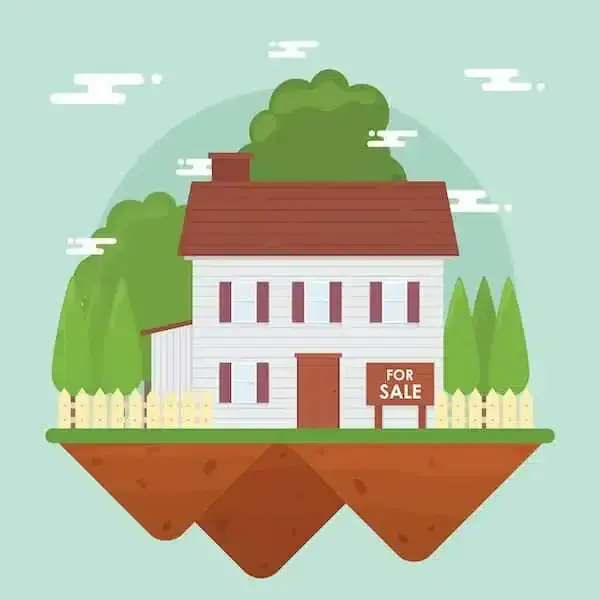
Post Relevant Information
Each of your social media posts should add value to your followers. In the event that the content is shared by your followers, it should inspire others to follow you. The key to accomplishing these goals is to always post relevant information. It makes sense to showcase your personal side from time to time as long as you do so in a professional manner.
However, most of your social media posts should be relevant to your audience. For example, your audience will undoubtedly find market updates useful and interesting. This market information may come through direct stats as well as proof of production posts.
For example, a just-listed photo can provide your audience with information about the price per square foot in the area. A just-sold photo can tell your audience how quickly a home in their area just sold.
Proof of Production Posts
While your target audience wants to know more about the market, you want to show them why they should contact you when they need to hire a real estate agent.
A proof of production post could potentially cover both bases, so it makes sense to incorporate these posts into your production calendar relatively heavily. A proof of production post could accomplish several different things. It can show your target audience how active you are in a specific geographic area.
It may show them how effective you are at helping your clients, or it may showcase your expert-level knowledge of the real estate market. What are some examples of proof of production posts?

Just-Listed Photos or Videos
These posts publish your most recent listings. They tell your social media followers that you are active in the local market, so they showcase your professionalism and relevance. At the same time, they could help you to sell a house.
After all, many of the people who follow you on social media platforms may be interested in moving forward with purchase plans if they locate the right house for their needs. Your photo or video post could inspire them to tour the property.
Perhaps some of your followers know people who are in the market, and they will share your listing with others. Even if you do not find a buyer for your listing through social media marketing, the shares may help you to grow your following or even to secure a new client who is in the market for a local property.
Neighborhood Market Updates
Some sellers monitor their neighborhood’s listing and sales activity for months before they decide to finally list their homes. Likewise, some buyers may be interested in the average price per square foot, the average time a listing is active and more. These stats can help your audience time their purchase or sale.
At the same time, the stats may encourage those who are on the fence to move forward. You may pull neighborhood market data from the MLS, but you should take the time to properly brand it.
You want the post to specifically showcase you as the expert who is providing timely market data, so ensure that it has all of your contact information and your broker’s logo on it.
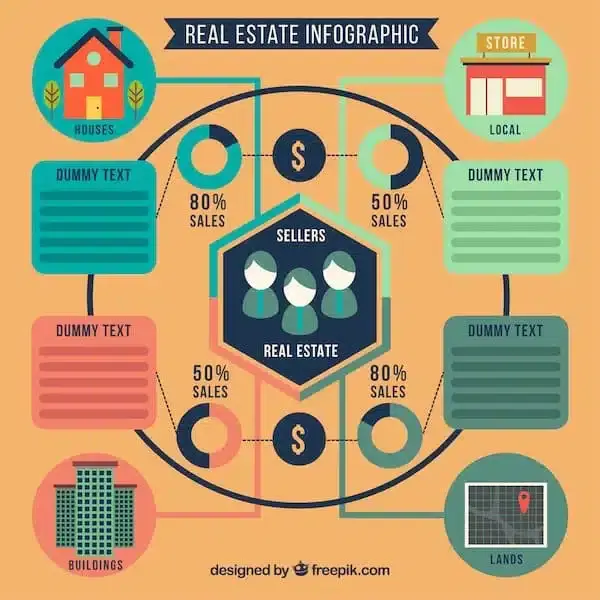
Real Estate Infographics
You can convey a tremendous amount of relevant information through infographics. More than that, many people may spend several minutes or longer absorbing all of the information conveyed through an infographic. This is time when the individual is focused on your message and is looking at a page with your name and contact information on it.
Depending on the nature of the infographic’s content, the post may contain market data, general information for buyers or sellers or other meaningful content. It can take time to create an effective, attention-grabbing infographic.
However, because of the potential for a well-designed infographic to be shared heavily or even to go viral, the time may be well-spent.

Open House Videos
People love to tour open houses. These people may include neighbors who are interested in the quality and price of homes that may be close to theirs, people who are actively searching for a new home and others. However, the individuals who may be interested in touring a specific house may have not been available during the event’s house or may have not been aware of the event when it took place.
Real estate social media marketing can significantly enhance the exposure of open house videos for active listings. These videos not only attract shares, extending your reach, but also resonate with potential sellers within the targeted geographic area. Furthermore, they highlight your active engagement within the community.
Brand Recognition Posts
Another type of social media post that you can add to your production calendar is a brand recognition post. These are posts that tell your audience who you are and what you are about. They can act as an initial introduction to new followers, and they can help you to refine your reputation and build relationships with established followers. What are some examples of brand recognition posts?
Client Event Photos and Videos
One of the purposes of brand recognition posts is to highlight your interaction with members of a specific community. This may be in a small neighborhood that you are farming, a suburb or a larger metropolitan area. Successful real estate agents engage with the community, such as by hosting community barbecues or sponsoring Fourth of July celebrations.
Whether you have participated in these or other community events, you can use social media marketing to optimize the benefits of your activities for promotional purposes. Even if some members of the community could not attend the event, they could see that you are active in the area through your social media posts.
Occasional Personal Posts
While your followers need to see that you are a true professional with deep real estate knowledge and experience in the local community, they also need to see you as a person. Personal posts on social media should be few and far between, so you should optimize the power of these posts.
Some thoughtful ideas for personal posts are to showcase your pets, your birthday celebration or your family doing something unusual and fun. Pay attention to the message that you are conveying through each post.
For example, does the post imply that you love adventure, that you support animal rescue groups or that you have other special interests?
Tips for the Most Popular Social Media Platforms
Now that you have a great understanding of the types of content that are beneficial for real estate agents to post on social media platforms, your attention may turn to using these platforms successfully. With the incredible potential offered by Facebook, Instagram and others, you understandably want to optimize that potential.

Facebook for Real Estate
Ideally, you will have both a personal profile page and a business page on Facebook. Through the personal page, you can stay connected to friends, family and others. You understandably will not post regularly about your business on the page, but it is a great way to periodically remind others that you practice real estate.
Your business page on Facebook will be used to connect with clients, colleagues and others who you interact with on a professional level. This type of page enables you to track your audience’s engagement with different types of content.
You may also pay to run ads or look for various real estate groups to join that could be relevant to your business.
Instagram for Real Estate
The largest group of homebuyers today are Millennials, and this is also the largest group of Instagram users. This means that Instagram offers a great opportunity to connect to buyers. Instagram is a photo-based app, so your focus on this social media platform should be to produce eye-catching, high-quality photos.
Experiment with filters to showcase homes and other subjects of your photos in their best light. While the emphasis will be on photos, your captions should be engaging and easy to skim through. In addition to posting images on the main feed, take advantage of Instagram Stories to further get the word out about your listings.
Remember that Facebook and Instagram are linked in some ways, so you can conveniently post the same content on both platforms as desired.
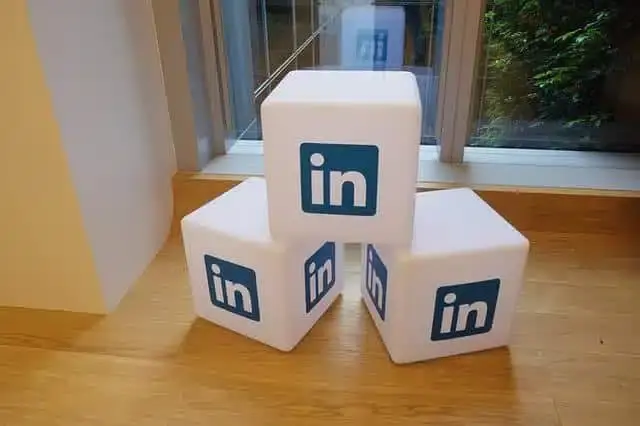
LinkedIn for Real Estate
LinkedIn is a professional networking platform, so it is a great place to connect with professional colleagues. However, you may still get a few clients or referrals from LinkedIn over time. LinkedIn has a superior search engine tool, so you should optimize your profile and all other relevant content with carefully selected keywords.
Making connections on LinkedIn is usually easy to do. As a professional networking platform, LinkedIn brings together like-minded individuals who want to corroborate in different ways. With this in mind, you should focus on making as many quality connections as you can. One way to do this is through groups.
Look for groups for real estate agents, investors, home contractors, lenders and others.
TikTok for Real Estate
TikTok’s demographics have evolved since it debuted in 2016. Originally, the platform was mostly popular with teenagers, but many adults now use the platform as well. As a video-based social media platform, this is a great space to showcase open-house videos, client testimonial videos and other similar types of content.
The videos are between 30 seconds and three minutes, so you will need to make the most out of each video you create by instilling quality content throughout the segment.
Pinterest for Real Estate
Pinterest is a photo-sharing platform. It may frequently be used by individuals who are looking for home design or decorating ideas, so it is an excellent way to reach those who may be looking to buy a first home, to upgrade or to downsize. Some ideas for the use of Pinterest in real estate marketing are to showcase beautiful aspects of your current listings and to post infographics for potential buyers or sellers.
Getting your images seen by others can be a challenge until you learn how to navigate the system’s board-based system
Summary
Mastering real estate social media marketing on platforms like Facebook or Instagram takes time. Concentrating on one or two platforms enables you to become proficient and harness their full potential. This focused approach ensures optimal utilization, unlike spreading yourself too thin across multiple platforms.
As you decide which platform you should focus on first, take a moment to research which platforms your target audience may be more likely to use as a first step.
